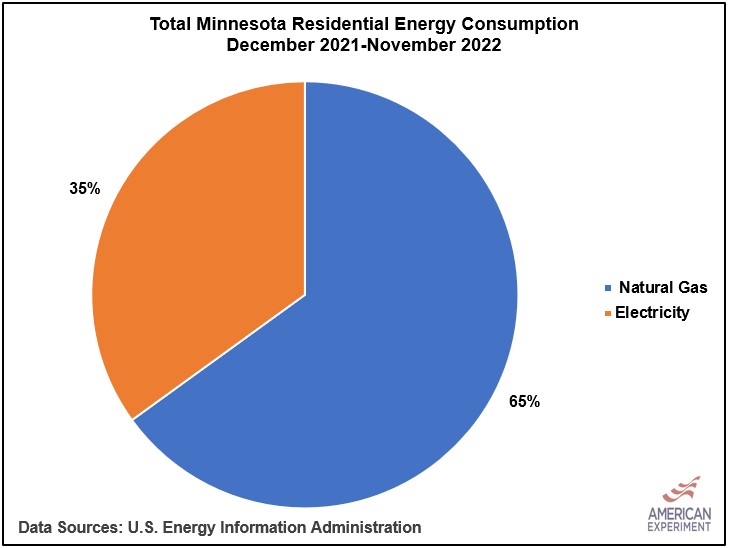The natural gas ban bill gets a hearing in the House next week
Liberal lawmakers are pushing forward with House File 772, which would allow the Department of Labor and Industry (DLI) to change the state building codes in a way that allows them to “reduc[e] greenhouse gas emissions of new buildings and of existing buildings undergoing additions, alterations, and changes of use,” in a hearing next Tuesday, February 21, 2023.
As a reminder, the changes to the building code in this legislation are as follows:
The commissioner may adopt amendments prior to adoption of the new energy codes, as amended for use in Minnesota, to advance construction methods, technology, or materials, or, where necessary to protect the health, safety, and welfare of the public, or to
improve the efficiency or use of a buildingmitigate the impact of climate change by increasing energy efficiency, improving resiliency, and reducing greenhouse gas emissions of new buildings and of existing buildings undergoing additions, alterations, and changes of use.
What this bill deletes from the existing statute is as important as the parts that it adds.
Previously, if DLI wanted to reduce emissions from commercial or residential buildings, they would have to change to building code to increase energy efficiency, but the new text adds “reducing greenhouse gas emissions” to broaden the agency’s power to regulate greenhouse gas emissions directly.
According to the Minnesota Pollution Control Agency, (MPCA) the majority of greenhouse gas emissions from residential households come from the onsite combustion of natural gas, propane, or fuel oil for home heating, with smaller emissions stemming from using these fuels for cooking, heating water, or in clothes dryers.
As a result, there is no other reasonable way to read this legislation other than as a Trojan Horse that will give the DLI the ability to ban the use of gas stoves, furnaces, and water heaters in the future without an explicit vote in the legislature through the administrative rules process.
This is an enormous policy change because 65 percent of the energy used in Minnesota homes over the course of a year comes from natural gas, with only 35 percent of that energy coming from electricity.

Some Minnesota liberals are pretending that this law will not give them the power to ban natural gas in the future, but in my opinion, this argument is entirely disingenuous and it ignores the fact that the Walz administration has already tortured the text of historical legislation to adopt their controversial California car mandates, which would force automakers to stock electric vehicles in Minnesota..
For example, the legislation that Governor Walz used to impose these unpopular mandates in Minnesota was written in 1960’s to address local air pollutants, not emissions of carbon dioxide.
The Pollution Control Agency shall improve air quality by promoting, in the most practicable way possible, the use of energy sources and waste disposal methods which produce or emit the least air contaminants consistent with the agency’s overall goal of reducing all forms of pollution. The agency shall also adopt standards of air quality, including maximum allowable standards of emission of air contaminants from motor vehicles, recognizing that due to variable factors, no single standard of purity of air is applicable to all areas of the state. In adopting standards the Pollution Control Agency shall give due recognition to the fact that the quantity or characteristics of air contaminants or the duration of their presence in the atmosphere, which may cause air pollution in one area of the state, may cause less or not cause any air pollution in another area of the state, and it shall take into consideration in this connection such factors, including others which it may deem proper, as existing physical conditions, zoning classifications, topography, prevailing wind directions and velocities, and the fact that a standard of air quality which may be proper as to an essentially residential area of the state, may not be proper as to a highly developed industrial area of the state.
If this text enabled the Walz administration to force electric cars onto auto lots in Minnesota to reduce carbon dioxide emissions, it is incredibly naive to think that the changes that HF 772 would make to the state building codes won’t be similarly abused in the future to ban your gas stove.
But instead of taking an unpopular vote on this topic, liberal lawmakers are embedding this regulatory authority with the bureaucracy like a landmine so they can claim it’s not their fault when this topic blows up in the future. This is the definition of rule by swamp.